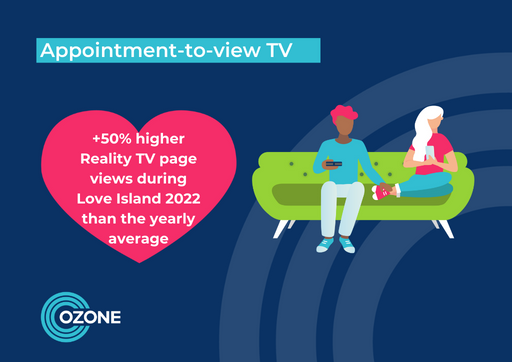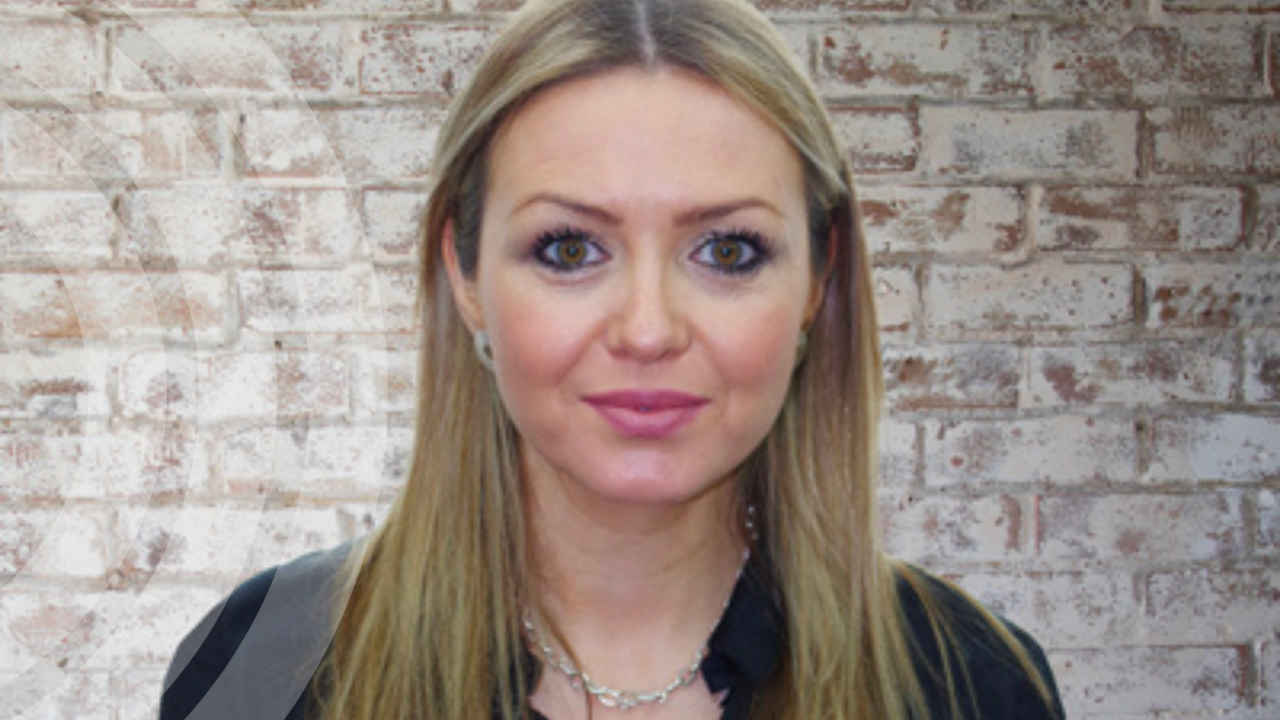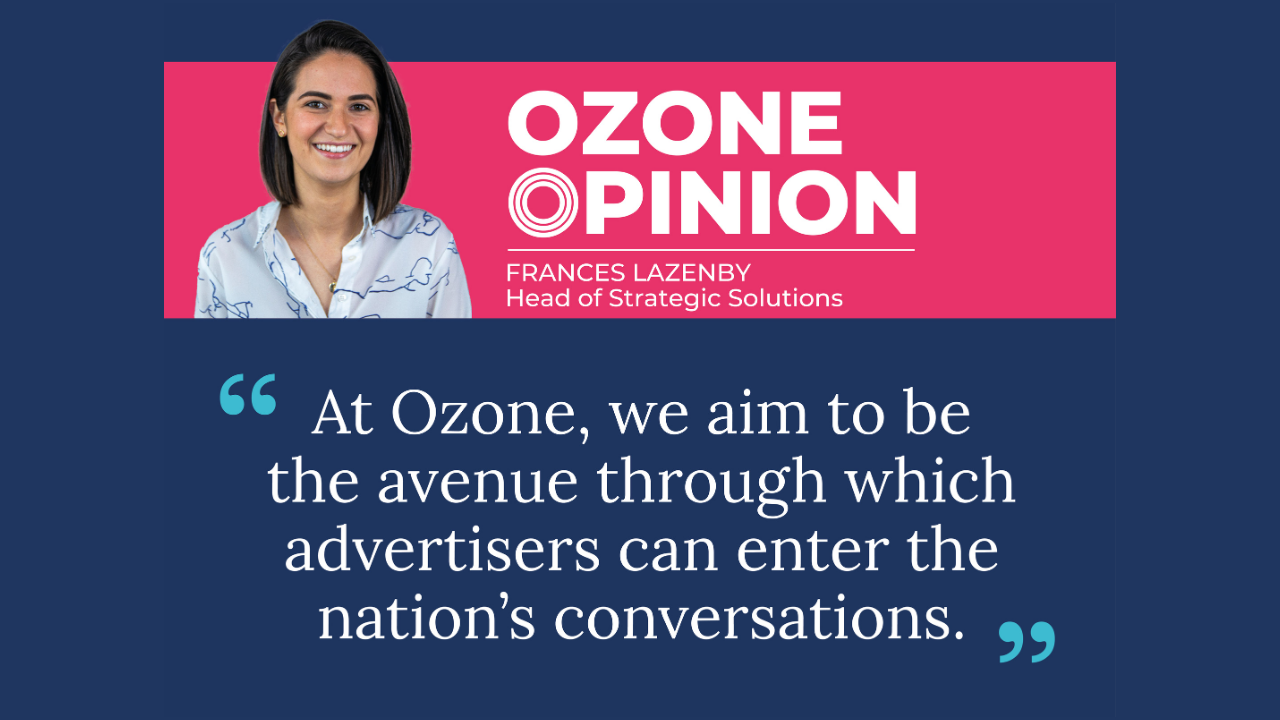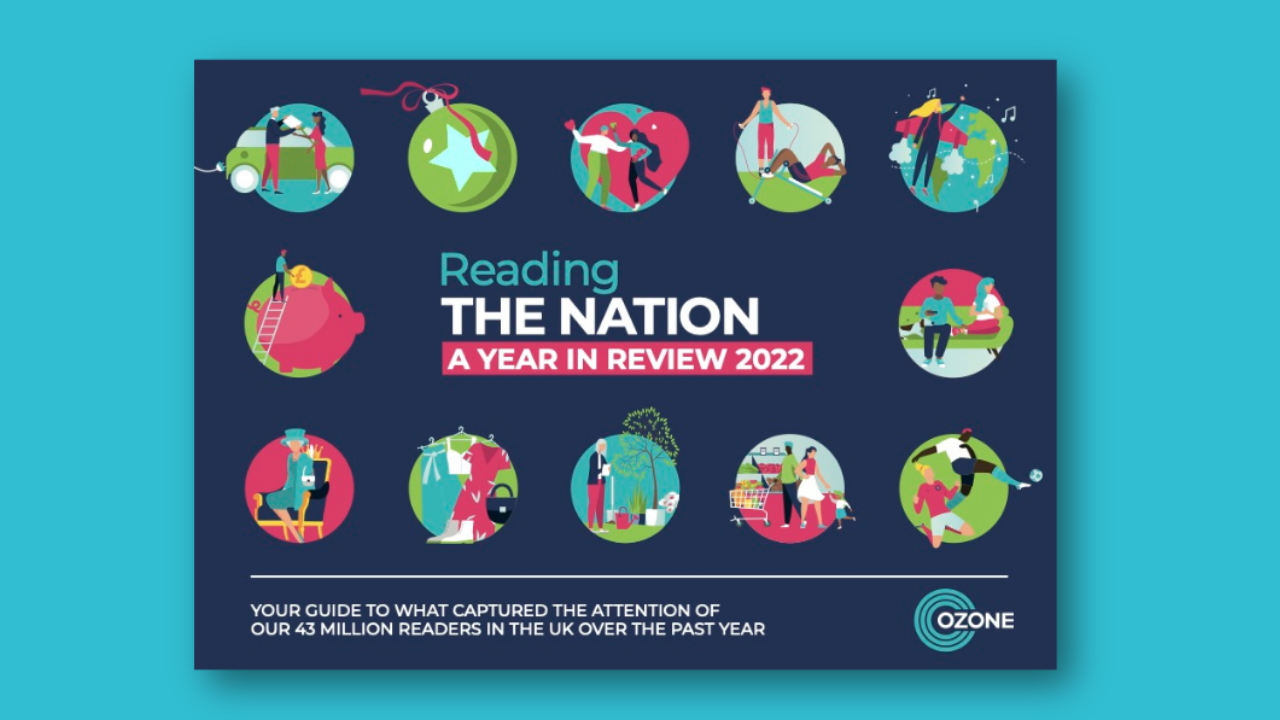Our marketing lead Bryan Scott looks at the importance of appointment-to-view TV – must-watch moments on TV that become must-read moments on Ozone.
The year 2022 was historically significant in many different ways, but for me the pinnacle was Sam Ryder’s epic second-place at the Eurovision Song Contest in Turin. Having heard the phrase “Le Royaume-Uni, douze points” a majestic eight times on the night, our Space Man took home more points in the most recent competition than the combined total of the previous twelve UK entries.
Now, you don’t have to be an ardent fan to derive inspiration and insight from Sam’s stage-busting performance. While many across the UK might gently mock the music extravaganza, it didn’t stop an average audience of 8.9m Brits tuning in for the Saturday night final on BBC One with a 56% audience share – a figure that peaked at 10.6m and 80% share for the climax of the voting. To put these figures into context, the national treasure that is Strictly Come Dancing delivered a 2021 final audience of 11m, while 6.3m tuned in for February’s unmasking of the winner of The Masked Singer, and 3.4m for the closing show of Love Island.
>
“There can be no denying that television is going through time-shifting, device-flipping change, yet from where Ozone sits, ‘appointment to view’ event-based programming still drives huge engagement with our readers”
Across Ozone’s publishers, the impact of the UK’s quest for glory was immediately seen during the week of Eurovision. Our Music & Audio content was dominated by contest headlines, with page views increasing by +83% week on week, and driving a further +91% growth in unique users for this content category. In particular, reader engagement with World & International music up almost 300x the previous week’s level. We also saw Television page views – one of our biggest content categories at any time – grow by 11% during the week of the contest to 36.2 million.
The 14.7m weekly page views we recorded in mid-May across the Music & Audio category was up two million on the year’s previous highest – seen at the beginning of February when The BRIT Awards took place. Perhaps this shouldn’t be a surprise given Eurovision’s average TV audience in the UK was more than three times that of The BRITS. One of the highest Music & Audio engagement levels came in late June when 14.9m page views were boosted by Glastonbury content with the festival’s return after a two-year in-person hiatus due to the pandemic.
As much as I’d love to continue scribing about Eurovision, the point of this piece is wider than my passion for Gina G and ABBA – and one that is particularly prevalent in the era of on-demand content. There can be no denying that television is going through time-shifting, device-flipping change, yet from where Ozone sits, ‘appointment to view’ event-based programming still drives huge engagement with our readers.
Take, for example, the annual arrival of ITV2’s Love Island. For the past three years we have seen it boost engagement with our Television and Pop Culture content across the summer. Similarly, other entertainment behemoths like Britain’s Got Talent, I’m a Celebrity… Get Me Out of Here!, The Great British Bake Off and Strictly Come Dancing all have a major impact on consumption patterns across our titles. Annual award shows like The Academy Awards, the BAFTAs and the National Television Awards all deliver similar traffic spikes across our sites. As the hype around these shows is driven on an almost live basis, premium publishers are incredibly well placed to amplify the biggest conversation drivers.
Similar content consumption peaks have been seen surrounding the initial release of binge-worthy series – be it Bridgerton, The Crown or Stranger Things – all of which benefit from up-front, movie-like hype. And it will come as no surprise that the release of blockbuster movies on the big screen – from Top Gun Maverick to Black Panther – also have the same effect on publisher traffic. And, as seen by Eurovision’s impact on the Music & Audio category, many of these on-screen moments also transcend content types – such as live TV football’s impact on the Sports category or Strictly Come Dancing’s on the Dance sub-category.
There are a number of advertiser benefits to be derived from these ‘appointment to view’ engagement boosts across our publishers. Firstly, they are pretty predictable, and we have plenty of evidence showing increased attention patterns in line with big show releases – and we tend to know well in advance when they’re on air. Secondly, engagement more often than not extends before and after a show’s on-screen run – providing even greater opportunity for building brand affinity with the show or event. And finally, for those shows not on commercial television, our contextual capabilities allow brands to align and immerse themselves with content related to them. Brands would be wise to stay switched on to and take advantage of these key trends.
Get your free copy now
If you’d like to get your free digital copy of Reading the Nation, A Year in Review 2022, you can do so by hitting the download button. Alternatively, you can request a printed copy by emailing [email protected].





